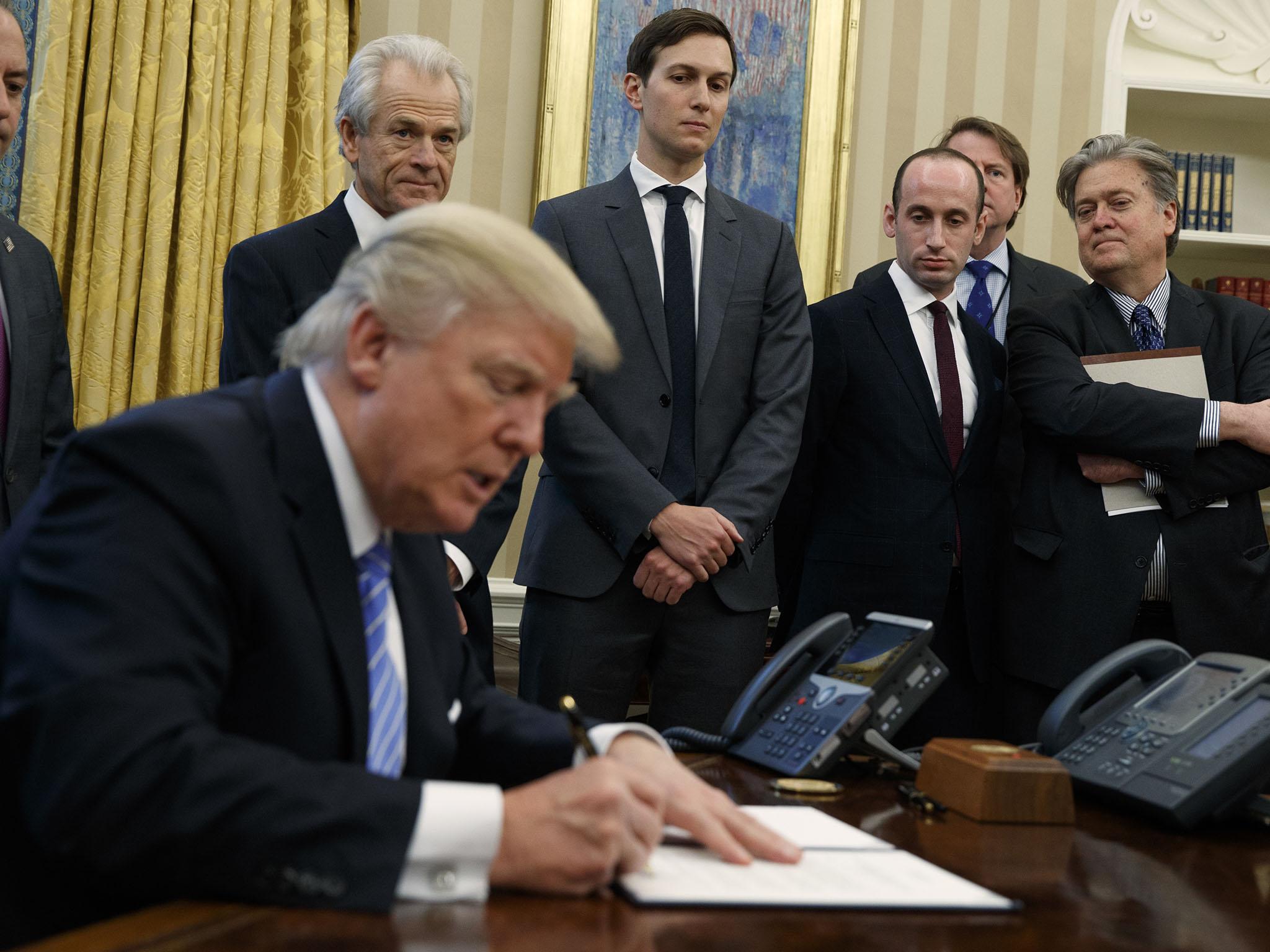Mexico City Policy: What is the abortion funding ban that Donald Trump just reinstated?
It was lifted by Barack Obama in 2009

Your support helps us to tell the story
From reproductive rights to climate change to Big Tech, The Independent is on the ground when the story is developing. Whether it's investigating the financials of Elon Musk's pro-Trump PAC or producing our latest documentary, 'The A Word', which shines a light on the American women fighting for reproductive rights, we know how important it is to parse out the facts from the messaging.
At such a critical moment in US history, we need reporters on the ground. Your donation allows us to keep sending journalists to speak to both sides of the story.
The Independent is trusted by Americans across the entire political spectrum. And unlike many other quality news outlets, we choose not to lock Americans out of our reporting and analysis with paywalls. We believe quality journalism should be available to everyone, paid for by those who can afford it.
Your support makes all the difference.Donald Trump is reinstating a ban on providing federal money to international groups that perform abortions or provide information on the option.
It is one of his first acts as US President, and reverses Barack Obama's executive order that lifted the ban in 2009.
What is the Mexico City Policy or Global Gag Rule?
Under the rule, no US government funding for family planning services can be given to clinics or groups that offer abortion services or counselling in other countries even if the funds for those activities come from non-US government sources.
It has been called the Mexico City Policy because it was unveiled at a UN conference there in 1984 and became one of the centrepiece social policies of the conservative administration of President Ronald Reagan.
Critics call it the "gag rule" because it also cuts funds to groups which advocate or lobby for the lifting of abortion restrictions, so they say it infringes on free speech.
What happened in the past?
The policy has become a partisan "tit for tat" depending on which party occupies the White House. Support for abortion rights is a central plank of the Democratic Party while abortion rights opponents, many of whom are conservative Christians, comprise a key Republican base.
Former President Bill Clinton rescinded the rule when he took office in January 1993.
George W. Bush reinstated it on Jan 22, 2001, in one of his first policy moves as president, saying: "It is my conviction that taxpayer funds should not be used to pay for abortions or advocate or actively promote abortion, either here or abroad." Barack Obama then lifted it again on 23 January 2009.
What's at stake?
The United States spends more than $400 million on overseas family planning assistance each year. The United States Agency for International Development (USAID) said as of September 2008 it provided family planning assistance to 53 developing countries.
Critics argue that the anti-abortion restrictions have resulted in huge drops for funding worldwide to organisations that provide family-planning services and basic healthcare, leading to back alley abortions and even deaths. They say this means many women are deprived of contraception and other health services in poor countries.
The Center for Reproductive Rights says, for example, that in Ethiopia and Lesotho, some non-governmental organisations (NGOs) are no longer able to offer comprehensive and integrated healthcare services to patients suffering from HIV/AIDS.
Abortion rights opponents and groups who support the Mexico City Policy contest the view that it has led to an increase of illegal abortions or deaths overseas.
Subscribe to Independent Premium to bookmark this article
Want to bookmark your favourite articles and stories to read or reference later? Start your Independent Premium subscription today.
Join our commenting forum
Join thought-provoking conversations, follow other Independent readers and see their replies
Comments